Many questions arise around becoming certified in homeopathy and being able to practice legally in the United States and Canada. Many students want to have a credential that gives legitimacy to their capability as a homeopath. What these credentials mean and how they impact the legality of practice is worthy of discussion.
Homeopaths get a wide variety of types of education and intentionally practice throughout the world in as many types and ways as there are homeopaths. Some think that all homeopaths should receive an agreed upon education and that homeopaths should practice alike. This is the antithesis of what it means to be a homeopath and to practice individualized medicine. Homeogeneity is not the focus of homeopathy and many acknowledge that homeopaths practice in different ways and receive a broad variety of training.
Certification and licensure are completely different for homeopathy. Certification is to certify. It amounts to attesting to something as true. Certification can come from any school or certifying organization, as to certifying the completion of a course or educational requirements.
Along with certification there is usually a title or credential that the applicant will have earned. There are many titles in circulation today that schools and organizations have created to attest to their applicant’s successful completion of their requirements. These certified credentials are not recognized by any State or Federal Regulating Agency and only serve to bring legitimacy to the homeopath.
The title most recognized in the world is RSHom. It comes from the Registered Society of Homeopaths in the UK. This title is the oldest and most respected title and is used by more classical homeopaths in the most countries around the globe. North American Society of Homeopaths (NASH) is an organization focused on bringing support for homeopaths and representing homeopathy as a profession. NASH will issue RSHom(NA) to their successful applicants.
NASH recognizes that training can be diverse for their applicants wanting RSHom(NA) registration. This is why having experience and submitting cases is an important element of their competency review process. NASH will not register untrained or inexperienced homeopaths.
No title, if not issued by a State or Federal Agency, is a license to practice homeopathy. Licensing is through the individual states and their legislation or laws concerning the practice of medicine or homeopathy, in particular. Licensing is a formal permission granted by law to engage in an activity that is regulated by a Governing Board controlled by State legislation. A few states have created Homeopathic Medical Boards that govern the practice of homeopathy in their state (Arizona, Connecticut and Nevada). Some states have passed legislation that is favorable to alternative medicine and allows the practice of homeopathy under certain conditions. Currently these include Minnesota, California, Rhode Island, Idaho, Oklahoma, Louisiana, New Mexico, Colorado and Maine.
The National Health Freedom Coalition (nationalhealthfreedom.org) is an organization committed to making alternative healing available to the public. They work at a grass roots level to change laws in states to allow the consumer the right to seek health care of their choice. For the most current status of their progress and current state laws, visit their website. For the state you wish to practice in, it is imperative that you investigate current legislation and find out what your state allows concerning the practice of medicine or homeopathy, in particular.
NASH has worked hard to bring legitimacy to homeopathy in North America. We are advocates for the homeopathic profession. We hold the highest standard of qualifications for our applicants and recognize the diversity within education today. If you are interested in receiving the most recognized title for homeopaths in the world, consider becoming an applicant for RSHom(NA). NASH and your RSHom(NA) credential will serve you well.
